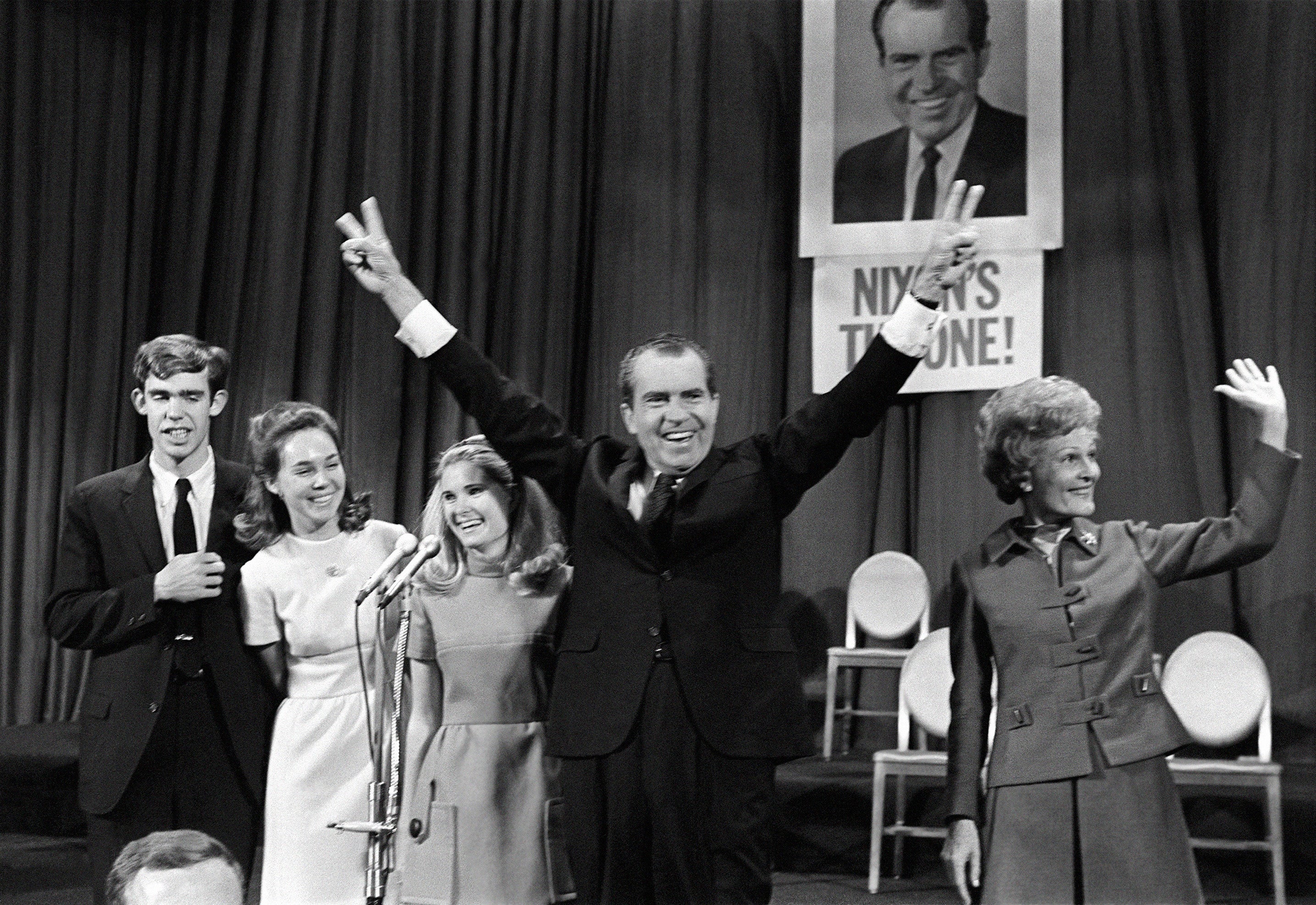Is Trump nuts? Or is he deploying the ‘madman theory’?
The US president may be making a political move that can be traced back to the 16th century and has been emulated by everyone from Nixon to Putin. But, is it really wise to simulate a wild persona with crazy ideas to get what you want? Guy Walters looks at what history tells us...


Another day, another completely unhinged announcement from the 47th president of the United States. This time, he’s declared that he wants to take over all 141 square miles of Gaza, and turn it into some kind of Middle Eastern “riviera”, doubtless complete with Trump hotels and golf courses. In the president’s eyes, this piece of land is part of a geopolitical Monopoly board and the whole world would be better off if it was basically like Florida.
It would be tempting to suppose that such policies are the product of a madman, the facile gibberish of a truly warped mind that has no grasp on reality, or ability to respond to complexity. And indeed, you might well be right. But what if the Potus is not potty, but just playing at being nuts? Could it be that Donald Trump is simply adopting the persona of a madman as some kind of devious political tactic to wrongfoot others?
If this is the case, then Trump will certainly not be the first world leader to take such a stance, which even has a catchy name – the madman theory. The essence of the theory is simple: adopt totally crazy and risky positions, perhaps even ones that sound self-destructive, and your opponents will acquiesce to your demands – because they’re so worried that you will take them down with you.
The figure most readily identified with the theory is the 37th president of the United States – Richard Nixon. It was Nixon who may well have even come up with the name of the theory, as he once explained it to his chief of staff, Bob Haldeman, in relation to his attempts to get the North Vietnamese to agree to an end of the Vietnam war.
“I call it the madman theory, Bob,” Haldeman recounted Nixon saying. “I want the North Vietnamese to believe I've reached the point where I might do anything to stop the war. We'll just slip the word to them that, ‘For God’s sake, you know Nixon is obsessed about communism. We can’t restrain him when he’s angry – and he has his hand on the nuclear button,’ and Ho Chi Minh himself will be in Paris in two days begging for peace.”
In 2015, documents emerged that revealed Nixon’s national security adviser, Henry Kissinger, was also in on the game. A memorandum from 1972 shows that Kissinger explained to a Department of Defense official called Gardiner Tucker that Nixon’s strategy was to make “the other side ... think we might be ‘crazy’ and might really go much further” – the implication being that Nixon might drop the bomb.
The obvious question is this: did Nixon’s posturing as a nuke-happy nutcase actually work? In short, it didn’t, because the Vietnam war continued until well after Nixon’s presidency and would not end until 1975.
Despite the great 16th-century political theorist Niccolo Machiavelli stating that it is sometimes “a very wise thing to simulate madness”, as Nixon found, the problem with the madman theory is that it really isn’t very effective.
While it can work for a short while, adopting the bat-crazy position is not ultimately sustainable in the far more complex world of international diplomacy and geo-political power moves at the highest level. Think of it like a game of poker. It might make sense to play irrationally for a few hands, but as soon as your opponents get wise to it – which they will – they’ll know you’re not truly mad and will just call your bluff or freeze you out of the game.

Look at what happened with Adolf Hitler, who deliberately presented an abnormal image of himself on the world stage, and who was utterly unlike his primary opponents – Western statesmen. He deliberately didn’t play by the same rules, and for a while, he outwitted them and gained much territory with no bloodshed.
What Hitler’s madness cultivated in the short term was fear and uncertainty, which he was able to exploit. However, in the long run, there are dangers for anybody wanting to follow this lead – and frankly, who would? If a leader’s actions are too erratic or uncontrollable, he risks alienating his allies, destabilising his government, or, as with Hitler, pushing the world toward catastrophic conflict.
A classic example is that of Muammar al-Gaddafi, the former despot of Libya. Here was a man who behaved outrageously, not least with his penchant for bizarre uniforms, and caused many around him to question his sanity. And while Gaddafi might have been eccentric, he was likely not to have been mad, and had adopted a kind of craziness to outwit his opponents.
However, it seems unlikely that Trump is deliberately playing the madman card, and instead simply sees politics as no more complicated than running a business
It didn’t work, because Gaddafi not only managed to run his oil-rich country into the ground, but also alienated nearly every other leader. That’s one of the fundamental problems with being the madman – nobody wants to be your friend. At best, they will just tolerate you until you are finally hoofed out of office, or in the case of Gaddafi, beaten and shot to death by a mob after being sodomised by a bayonet.
As well as risking having no friends, playing the madman only ends up causing you and your own country huge amounts of harm. Trump’s desire to place swingeing tariffs on imports from his major trading partners will only hit his own people in the wallet – and is surely economically mad. Yes, he could be using the bonkers threat of tariffs as a Nixonian style of getting his own way, but, in reality, there is no evidence – or indeed expectation – that the threat will make him any gains or secure him any leverage.
In this respect, Trump’s “madness” is very similar to that of Chairman Mao, in that he is coming up with policies that are intended to help, but will only end up causing damage. Nobody is suggesting that the president wishes to kill millions of his own people, but there are many who are certain his on-the-fly policy announcements have the potential to bring about suffering.

However, it seems unlikely that Trump is deliberately playing the madman card, and instead simply sees politics as no more complicated than running a business. He may certainly be eccentric, but not as visibly so as the Soviet premier Nikita Khrushchev, who notoriously brandished his shoe – and was said to have banged his desk with it – during a speech being made in 1960 at the United Nations by a delegate from the Philippines. That single act, although calculated, made Khrushchev seem just a bit too mad, and he would lose power a few years later.
Of course, one of the biggest questions in international affairs right now is whether another Russian leader is losing his marbles, or just adopting what Hamlet called an “antic disposition”. The leader is of course Vladimir Putin, and many are divided as to his sanity. Whether it is his comically long white table, the futuristic disinfection tunnel which visitors apparently have to walk through or his bizarre series of topless horse-riding photos and lengthy rants against the West, his behaviour is certainly questionable. But, recently, an unnamed former friend of the Russian president claimed that Putin’s persona was more crafted.
“On one hand it’s easy to say that Putin is crazy,” the man told Newsweek. “Because of him, now we’re starting to think about nuclear war, which is completely different from two or three years ago. But on the other hand, his actions are not crazy at all. He’ll do anything to stay in power, and using nuclear rhetoric is a means to that end. It’s effective for him, but it’s a mad strategy for Russia.”
It seems likely that Putin is indeed playing the mad card. The problem that he will find – or may have already found – is whether by pretending to be mad for so long, you actually end up being so.
Join our commenting forum
Join thought-provoking conversations, follow other Independent readers and see their replies
Comments


Bookmark popover
Removed from bookmarks